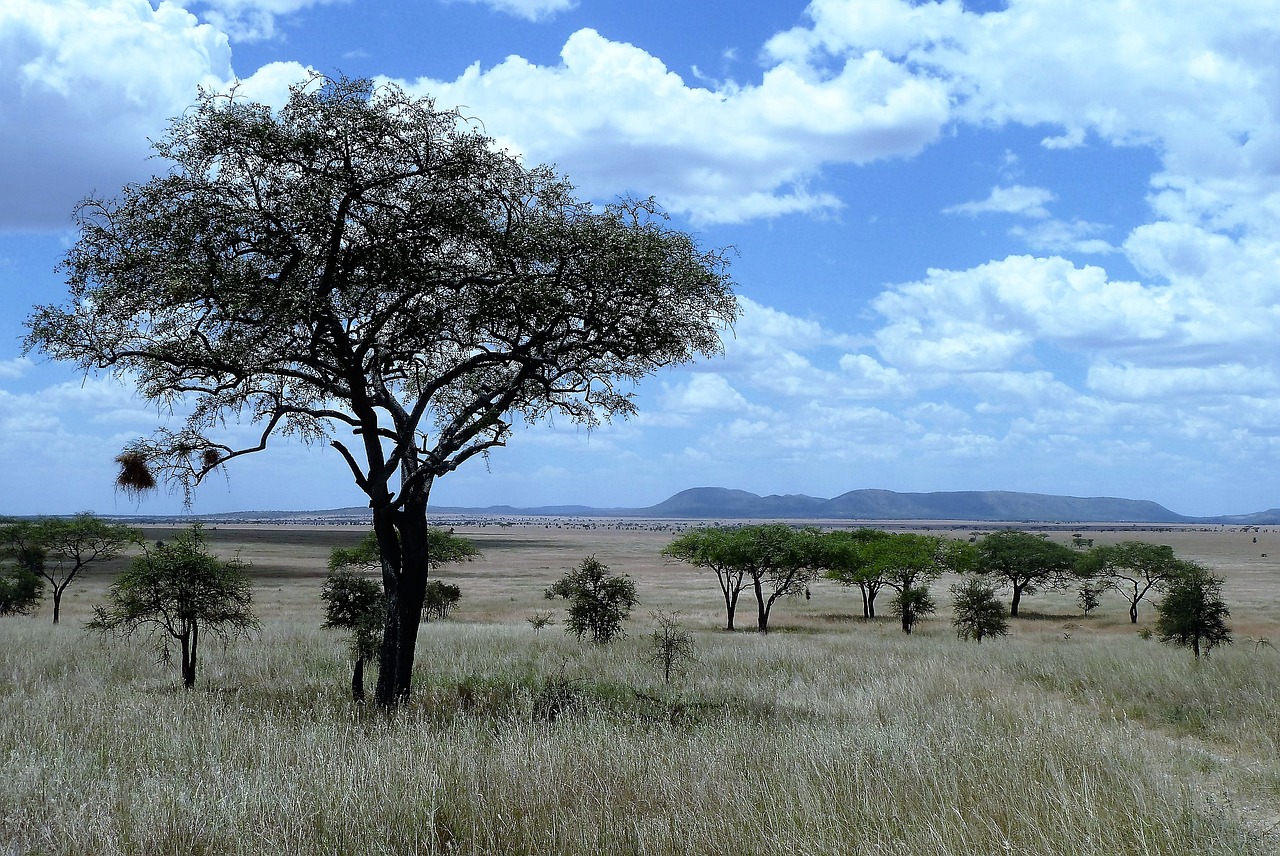Local Markets in Tanzania: Sourcing Fresh Produce and Goods
Tanzania Image 1:

Tanzania Image 2:

Tanzania Image 3:

Introduction
Tanzania, located in East Africa, is known for its vibrant local markets that offer a wide variety of fresh produce and goods. These markets are not only important for the local economy but also provide an authentic cultural experience for visitors. In this article, we will explore the local markets in Tanzania and discuss how they are a reliable source for sourcing fresh produce and goods.
Traditional Tanzanian Cuisine
One of the highlights of visiting local markets in Tanzania is the opportunity to discover traditional Tanzanian cuisine. The markets are filled with a range of fresh ingredients that are essential for preparing authentic Tanzanian dishes. Some popular ingredients include:
- Plantains: A staple in Tanzanian cuisine, plantains are used in various dishes, both sweet and savory.
- Cassava: Another common ingredient, cassava is a starchy root vegetable that can be boiled, fried, or mashed.
- Coconut: Fresh coconuts are widely available in the markets and are used in both cooking and refreshing beverages.
Exploring the local markets allows you to immerse yourself in the culinary culture of Tanzania and discover new flavors and ingredients.
Fresh Produce Markets
Tanzania is blessed with fertile land and a favorable climate, making it an ideal location for agriculture. As a result, the country has an abundance of fresh produce markets where farmers sell their locally grown fruits and vegetables. Some popular fresh produce markets in Tanzania include:
- Kariakoo Market: Located in Dar es Salaam, Kariakoo Market is one of the largest and busiest markets in Tanzania. It offers a wide variety of fruits, vegetables, and spices.
- Arusha Central Market: Situated in the heart of Arusha, this market is known for its vibrant atmosphere and diverse selection of fresh produce.
- Mwanza Central Market: Located in Mwanza, this market is a hub for fresh fish, as it is situated near Lake Victoria.
Visiting these markets allows you to support local farmers and indulge in the freshest produce Tanzania has to offer.
Artisan Crafts and Souvenirs
In addition to fresh produce, local markets in Tanzania also offer a wide range of artisan crafts and souvenirs. These markets are a treasure trove for unique handmade items that reflect the rich cultural heritage of Tanzania. Some popular artisan crafts and souvenirs include:
- Maasai Beaded Jewelry: The Maasai tribe is known for their intricate beadwork, and you can find beautiful jewelry pieces in the markets.
- Kangas and Kitenges: These vibrant fabrics are commonly used for clothing and can be found in various patterns and colors.
- Wood Carvings: Tanzanian artisans are skilled in wood carving, and you can find intricately carved sculptures and masks in the markets.
Exploring the markets for artisan crafts and souvenirs allows you to support local artisans and take home a piece of Tanzanian culture.
Spice Markets
Tanzania is known for its aromatic spices, and the spice markets offer an opportunity to explore and purchase a wide variety of spices. Some popular spices found in Tanzanian markets include:
- Cloves: Zanzibar, a region of Tanzania, is famous for its cloves, which are used in various dishes and beverages.
- Cinnamon: This warm and fragrant spice is commonly used in Tanzanian cuisine, particularly in desserts and hot beverages.
- Cardamom: Known for its distinct flavor, cardamom is a popular spice used in both sweet and savory dishes.
Visiting the spice markets allows you to experience the vibrant scents and flavors of Tanzanian cuisine and bring home some exotic spices.
Seafood Markets
With its long coastline and proximity to the Indian Ocean, Tanzania is a paradise for seafood lovers. The seafood markets in coastal towns offer a wide variety of fresh fish and shellfish. Some popular seafood markets in Tanzania include:
- Darajani Fish Market: Located in Stone Town, Zanzibar, this market is a bustling hub for fresh seafood, including prawns, lobsters, and various fish species.
- Temeke Fish Market: Situated in Dar es Salaam, this market is known for its wide selection of fish, including snapper, tuna, and kingfish.
- Kigamboni Fish Market: Another popular fish market in Dar es Salaam, it offers a variety of fish and seafood options.
Exploring the seafood markets allows you to indulge in the freshest catch of the day and savor the flavors of the ocean.
Traditional Medicine Markets
Tanzania has a rich tradition of traditional medicine, and the local markets are a hub for herbal remedies and traditional healing practices. Some popular traditional medicine markets in Tanzania include:
- Mwananyamala Traditional Medicine Market: Located in Dar es Salaam, this market offers a wide range of medicinal herbs, roots, and traditional remedies.
- Ilala Traditional Medicine Market: Situated in the Ilala district of Dar es Salaam, this market is known for its diverse selection of traditional medicine.
- Zanzibar Traditional Medicine Market: Found in Stone Town, Zanzibar, this market specializes in traditional medicines and herbal remedies used by the local population.
Exploring these markets allows you to learn about traditional healing practices and explore alternative remedies.
Local Market Etiquette
When visiting local markets in Tanzania, it’s important to be mindful of local customs and etiquette. Here are some tips to ensure a respectful and enjoyable experience:
- Dress modestly: Tanzania is a conservative country, so it’s best to dress modestly when visiting the markets, especially if you plan to visit religious sites nearby.
- Negotiate respectfully: Bargaining is common in local markets, but it’s important to negotiate respectfully and avoid aggressive haggling.
- Ask for permission: If you want to take photos of vendors or their products, always ask for permission first out of respect for their privacy.
By following these guidelines, you can ensure a positive interaction with the local vendors and create a memorable experience.
Supporting Local Communities
Visiting and purchasing from local markets in Tanzania is not only a way to source fresh produce and goods but also a means of supporting local communities. The income generated from these markets directly benefits local farmers, artisans, and traders, contributing to the economic development of Tanzania.
Conclusion
Local markets in Tanzania offer a vibrant and authentic experience, allowing visitors to source fresh produce, discover traditional cuisine, and explore unique artisan crafts. These markets are an integral part of Tanzanian culture and provide an opportunity to support local communities. Whether you’re a food enthusiast, a souvenir collector, or simply curious about Tanzanian culture, a visit to the local markets is a must.
References
- Kariakoo Market: www.kariakoomarket.co.tz
- Arusha Central Market: www.arushacentralmarket.com
- Mwanza Central Market: www.mwanzacentralmarket.co.tz
- Zanzibar: www.zanzibartourism.go.tz
- Darajani Fish Market: www.stonetownfishmarket.com
- Temeke Fish Market: www.temekefishmarket.co.tz
- Kigamboni Fish Market: www.kigambonifishmarket.co.tz
- Mwananyamala Traditional Medicine Market: www.mwananyamalatraditionalmedicine.com
- Ilala Traditional Medicine Market: www.ilalatraditionalmedicine.co.tz
- Zanzibar Traditional Medicine Market: www.zanzibartraditionalmedicine.com


